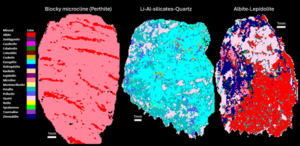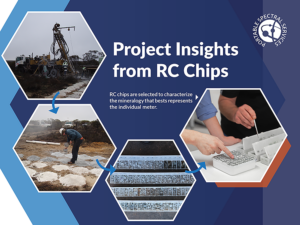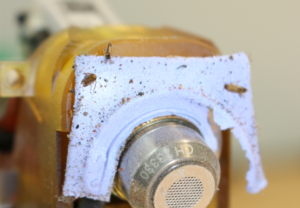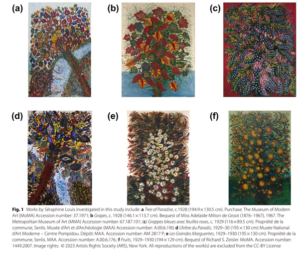
A Bright Future Ahead
Portable Spectral Services Announces Exciting Management Transition
Portable Spectral Services is pioneering the development of spectral technology, at the forefront of both field and laboratory analysis. The latest offering, GEMA (General Element Material Automation), showcases team commitment to innovation and excellence, with a range of features representing a significant leap forward in mineral analysis which makes it a potential mining industry game-changer.
One key feature of GEMA is its End-to-End rapid and non-destructive analysis of samples using XRF technology. This powerfully combines with co-bot automation and integration into a digital spectral laboratory system to deliver on-time results to the client portal while preserving the sample spectral DNA. This is a significant advancement in the field of mineral analysis, and fits growing global expectations for reducing waste and increasing sustainability performance.
Another major advantage of GEMA is its ability to map large samples at a high-resolution using Bruker’s micro-XRF, up to 20um resolution. This high-resolution mapping generates a detailed sample view, yielding the identification of small-scale variations of material chemistry, which could be crucial in determining its composition and origin.
Data produced by GEMA is comprehensive and includes quantitative geochemistry, mineralogy, spatial data such as liberation and locking, grain shape, grain size distribution and characteristics. Collectively this provides a complete picture of a sample, enabling researchers and mining companies professionals to make informed decisions. Typical sample types include thin sections, heavy mineral concentrates, sands, and RC chips, and are adaptable for drill core and more.
GEMA streamlines the process of sample analysis from start to finish. At the front-end samples are logged, weighed, and barcoded into the GEMA LIMS system. This information passes to the AM4 system where samples load into the micro-XRF.
Automation is a key feature of GEMA. Samples are automatically scanned, photographed, and loaded into the micro-XRF by the AM4 robot. This automation both reduces human error and increases the speed and efficiency of the process. A buffer rack provides up to 4 days’ worth of capacity, and the rapid scanning allows for up to 200 samples a day with scalability when utilizing additional Micro-XRF’s.
The GEMA micro-XRF measures elements from Carbon to Uranium, to support analysis of any mineral system or commodity including base metals, precious metals, rare earths, –nickel sulphides, laterites mineral sands and LCTs etc.
One of the most significant advantages of GEMA over traditional delivery of analytical and mineralogical data is the ability for clients to interpret samples in real-time using API’s and Apps (e.g. Headless GAS) on the GEMA portal.
GEMA represents a significant advancement in the field of mineral analysis providing rapid, non-destructive, and high-resolution sample analysis enhanced by automation and real-time interpretation capabilities. To learn more about how this exciting development of a valuable new tool can enable your mineral exploration, mining, or research contact Portable Spectral Services. Stay tuned for more updates on this exciting development in the world of mineral analysis!

Portable Spectral Services Announces Exciting Management Transition

Our tool introduces uXRF (micro-X-ray fluorescence) scanning technology to RC chip analysis, enabling rapid, non-destructive, and quantitative analysis of major, minor, and trace mineral phases.

Automated micro-X-ray fluorescence (micro XRF) technology emerges as a powerful tool to rapidly and accurately capture the mineralogy of rock chip, RC and AC samples.

Findings of an ongoing regional evaluation study over concealed Proterozoic lithologies known to host magmatic nickel sulphides with potential to host other base-metal, gold and rare earth elements (“REE”) systems within the Fraser Range, Western Australia.

Findings of an ongoing regional evaluation study over concealed Proterozoic lithologies known to host magmatic nickel sulphides with potential to host other base-metal, gold and rare earth elements (“REE”) systems within the Fraser Range, Western Australia.

Findings of an ongoing regional evaluation study over concealed Proterozoic lithologies known to host magmatic nickel sulphides with potential to host other base-metal, gold and rare earth elements (“REE”) systems within the Fraser Range, Western Australia.
